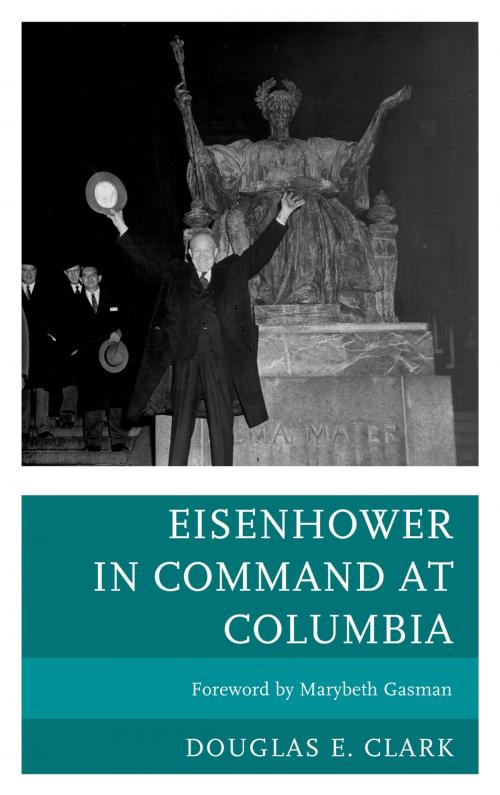Eisenhower in Command at Columbia
Nonfiction, Reference & Language, Education & Teaching, History, Educational Theory, Leadership, Administration| Author: | Douglas E. Clark | ISBN: | 9780739178379 |
| Publisher: | Lexington Books | Publication: | March 8, 2013 |
| Imprint: | Lexington Books | Language: | English |
| Author: | Douglas E. Clark |
| ISBN: | 9780739178379 |
| Publisher: | Lexington Books |
| Publication: | March 8, 2013 |
| Imprint: | Lexington Books |
| Language: | English |
Dwight D. Eisenhower’s presidency of Columbia University (1948-1953) is among the least written about periods of his career. It is all but dismissed by historians as a mere interlude between his service as World War II’s most celebrated general and his two terms as president of the United States. His Columbia tenure was marked by extended absences from campus and ongoing political speculation regarding a run for the White House in 1952. Eisenhower in Command at Columbia disputes the conventional wisdom that Eisenhower’s Columbia presidency was unsuccessful. In fact, under his leadership, Columbia moved forward in several important areas. Eisenhower’s tenure at Columbia was, nevertheless, difficult at times. His lack of both academic experience and a full understanding of academic culture diminished his capacity to lead and damaged his credibility with faculty.
While the book brings historical perspective to Eisenhower’s presidency of Columbia, its primary purpose is to analyze Eisenhower’s tenure in the context of higher education leadership. His experience at Columbia is relevant today because it demonstrates the importance of understanding institutional culture when leading a college or university. His selection as the university’s president reveals flaws in the process that still plague boards today in what is arguably their most important job —selecting an institution’s leader. This book will appeal to scholars in higher education, history, and university administration, among others.
Dwight D. Eisenhower’s presidency of Columbia University (1948-1953) is among the least written about periods of his career. It is all but dismissed by historians as a mere interlude between his service as World War II’s most celebrated general and his two terms as president of the United States. His Columbia tenure was marked by extended absences from campus and ongoing political speculation regarding a run for the White House in 1952. Eisenhower in Command at Columbia disputes the conventional wisdom that Eisenhower’s Columbia presidency was unsuccessful. In fact, under his leadership, Columbia moved forward in several important areas. Eisenhower’s tenure at Columbia was, nevertheless, difficult at times. His lack of both academic experience and a full understanding of academic culture diminished his capacity to lead and damaged his credibility with faculty.
While the book brings historical perspective to Eisenhower’s presidency of Columbia, its primary purpose is to analyze Eisenhower’s tenure in the context of higher education leadership. His experience at Columbia is relevant today because it demonstrates the importance of understanding institutional culture when leading a college or university. His selection as the university’s president reveals flaws in the process that still plague boards today in what is arguably their most important job —selecting an institution’s leader. This book will appeal to scholars in higher education, history, and university administration, among others.















